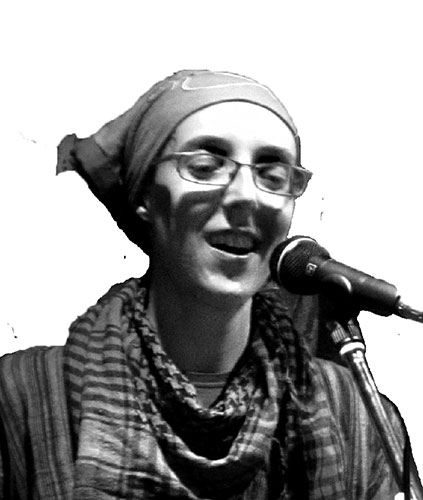In 1923, my granny went to study at the Royal College of Music to be a piano teacher. She loved to play the piano more than almost anything, and when she married my grandfather she had to give up working. She carried on playing, but there was always a thread of sadness that she wasn’t allowed to teach. My mum was also a beautiful pianist, though for pleasure rather than profession, and she trained first as a librarian and later as a person-centred counsellor.
Before she died, I recorded my mum talking about her journey with feminism and how she had seen the change in women’s rights and the struggle for equality through the arc of her lifetime. She told me that although she grew up in the 1950s she didn’t experience some of the limiting expectations that many of her peers did, because her dad had always wanted a boy, and he sort of encouraged her to go out and do things as if she was. Which shows us that, despite the great weight of social norms and conventions that we are working against, as individuals in young people’s lives we really can make a difference to how they experience the world and what they feel is possible for them.
It was when she stopped working for a few years to raise me and my brother that my mum really felt the full force of gender inequality in her own life. She felt judged and looked down upon for being ‘just a housewife’ – and we all know the massive unpaid labour that is raising children and running a household.
I grew up in the 1980s and ’90s and, despite having an overtly feminist mother, I was surrounded by a dominant narrative of ‘women are equal enough now’ (which was very much not the case, and still isn’t). I was the first girl allowed to wear trousers at my secondary school – they said I couldn’t and so my mum went in and took them to task over equality legislation and they had to back down. It wasn’t easy being the only girl in trousers at my school, and I never made the links about what that meant until later but, soon enough, other girls started wearing trousers too.
As a young teenager, I used to say to my mum: ‘I’m not a feminist, I’m an equalist’. I would see her trying not to grin, and I never remember her saying to me: ‘That’s what feminism is!’ She must have known I’d get there.
So, when I had left home and had time to read more and be more in the world, I of course came to the realisation that I am in fact a feminist and would have to own up to it.
So, one night, I picked up the phone and asked my mother to sit down as I had something important to tell her. ‘I’m a feminist,’ I said. We laughed and laughed. (She partly with relief that there wasn’t an actual emergency, I’m sure!).
This weekend I premiered Seeds of Hope: A Feminist Requiem, a large community-focused work that I have been writing, on and off, for the last 10 years in memory of my mum and all of the other amazing women whose shoulders we stand upon.
I am living in a world that my granny couldn’t possibly have imagined, and that my mum did. This requiem is partly a celebration of that fact, but it’s also a musical space for people to feel connected with each other and be supported to feel whatever they need to feel. And, for me, this is also radical.
When we think about radical music, we’re often talking about the music that challenges – singing in the streets to say ‘no’ to those things that hurt people and planet, or songs shared in performance that reframe the narrative and encourage listeners to question what we are being told.
For me, one of the damaging dominant narratives present in the society we live in is that some people are weak and some are strong. So many of us stifle feelings of upset to give the (false) impression that we are ‘strong’. It doesn’t help us and it doesn’t help anyone else.
The world is a particularly painful place to be just now, and if we aren’t able to feel, process and release some of our natural human reactions to that reality then we won’t be very effective activists. We will simply be hurting too much.
So, sometimes, making radical music is about using our creativity to help to bring people together in community to support each other to feel. In the right space, we can feel grief and pain alongside celebrating a connection with those we have lost and those we still have dancing beside us. The only truly radical act is love. It always has been and it always will be.


